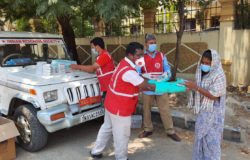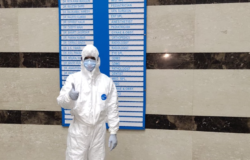A unique collaborative initiative, the Regional H.E.L.P. (Health Emergencies in Large Populations) Course — jointly organised by the ICRC regional delegation in New Delhi in partnership with academic institution IIHMR, the WHO, NIDM and IRCS — has touched the lives of many people over the past few years. The two-week multi-disciplinary training uses the public health approach and participants learn about prevention and control of infectious diseases, practical epidemiology in the field, international humanitarian law, security and stress of professionals. These are people who are directly involved in the provision of humanitarian relief in times of emergencies. In the current COVID-19 crisis, too, it has been inspiring to see many of them lead from the front. From contact tracing, distribution of essential relief, conducting awareness campaigns on preventive measures and training rescuers in safe transportation of patients to patient management and dignified management of the dead, these specialists — belonging to diverse fields — are responsible for decision-making in critical areas of the COVID-19 response.
On the occasion of World Red Cross Day, here is a snapshot of the work carried out by them over the past two months in their own words.
Prachi Bhatnagar
State Coordinator SERV Programme and Blood Services, UP State Branch, Indian Red Cross Society
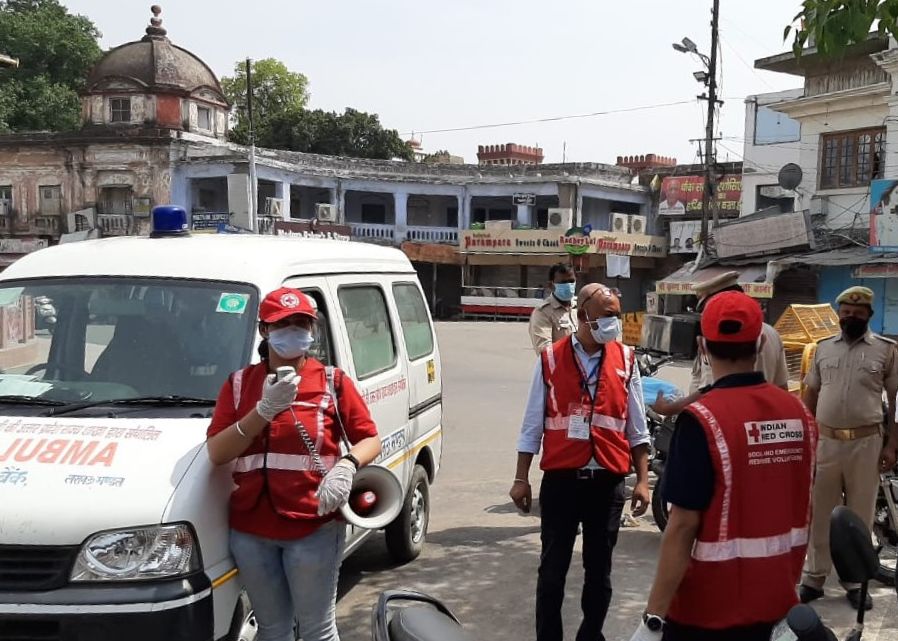
Our work, over the past few weeks, has resulted in behavioural change of people towards social and physical distancing, and personal hygiene. The branch is carrying out a wide range of activities as part of COVID-19 emergency response. This includes awareness campaigns, publishing and distributing information material, donating face shields, face masks, and other protective gear to frontline workers – in coordination with the local government authorities and other partners. We are also distributing food and dry ration, coordinating blood supply to thalassemia patients, among other critical support. I am involved in these activities and responsible for the coordination with various stakeholders at the branch level, providing technical support to volunteers and district branches and managing the activities in the field. The knowledge shared with us at the HELP course, especially on data collection, analysis and sharing, epidemiology, and communicable diseases, has been very useful in planning and implementing the interventions.
 Dr Shashank Gupta
Dr Shashank Gupta
District Epidemiologist, National Health Mission, Madhya Pradesh
As an epidemiologist with the National Health Mission in Sagar district, Madhya Pradesh, I am primarily responsible for contact tracing and maintaining the line listing of persons who are directly or indirectly in contact with any COVID-19 positive patient. I am monitoring the active surveillance team, which is conducting surveys to identify suspect patients. Due to my work, it became possible to identify suspected cases of COVID-19 in high-risk and in low-risk categories. Because of this categorisation, only those samples were sent to the lab that were in the high-risk areas while the rest of the people went in for home quarantine/institutional quarantine. My work also helped in the proper utilisation of the people who are volunteering to support the response to the COVID-19 outbreak. In Chhattisgarh now, volunteers are carrying out their services at the hospital according to the line listing I created. The Regional HELP Course has helped me a lot in making critical decisions. I was able to categorise the volunteer network according to the need assessment I learned during the course. The ethics taught at the course have also enabled my work, especially in relation to contact line listing. Many other learnings continue to impact my work on a daily basis and will influence the decisions I take in future as well.
Rituraj Kaushik
Project Coordinator First Aid, Master Trainer, First Aid & SERV, Assam State Branch, Indian Red Cross Society
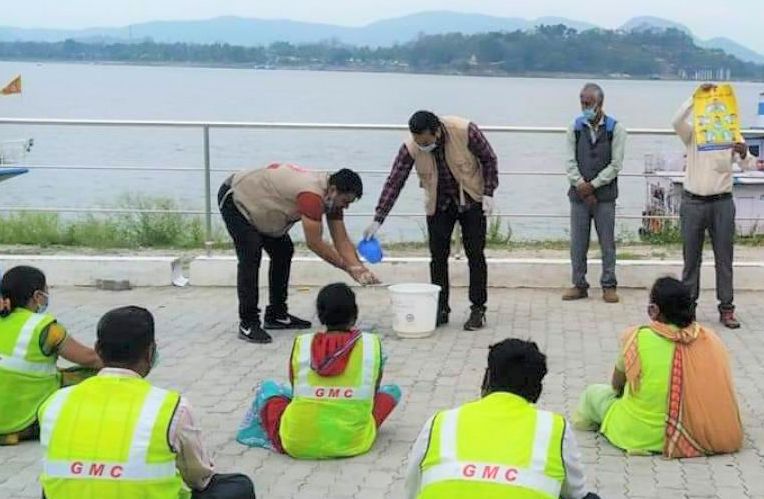
The Indian Red Cross Society, Assam State Branch has been working in various areas in response to the COVID-19 outbreak. Participating at the recently-held Regional HELP Course in New Delhi provided me a lot of insight into tackling such emergencies and has kept me in good stead over the past weeks. Engaged in the First Aid Project, I am mobilising volunteers, who were trained earlier, across the state. I am also sharing information on necessary precautions to be taken – a host of which I learned during the course – especially with the migrant labourers and the homeless living in shelter homes apart from municipality workers involved in disinfection activities. In the HELP course, which took place in the first week of March 2020, we discussed COVID-19, water and habitat, nutrition, mental health – this learning has provided a boost to my confidence, particularly as we are faced with the pandemic. In the shelter home run by the Indian Red Cross Society’s Assam State Branch, I support the activities related to safe water storage, balanced diet distribution, hand hygiene promotion, construction of toilets and mental support. Regular exchange and experience sharing with fellow HELP course participants from India and beyond has been an additional advantage as all of us are tackling similar challenges in relation to our COVID-19 activities across geographies.
D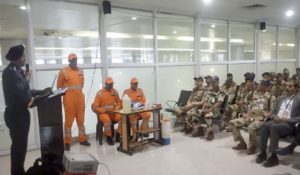 r Jaivir Singh
r Jaivir Singh
CMO SG, National Disaster Response Force (NDRF)
As a medical officer in-charge of the NDRF unit, I have trained about 600 rescuers for rapid response during the COVID-19 pandemic. The NDRF has been carrying out various duties, which includes sanitising several areas and hospitals as and when required. I have also trained rescuers in safe handling of suspected COVID-19 patients and their relatives during transportation in addition to training the rescuers in biomedical waste management and dignified management of the dead. I have also been involved in preparing masks and sanitisers at the local level in addition to the awareness programmes. The ICRC course helped all of us in understanding epidemiology of disease and in planning various operations during a pandemic.
Dr. Kumar V.L.S.
Vice-Chairman, Karnataka State Branch, Indian Red Cross Society
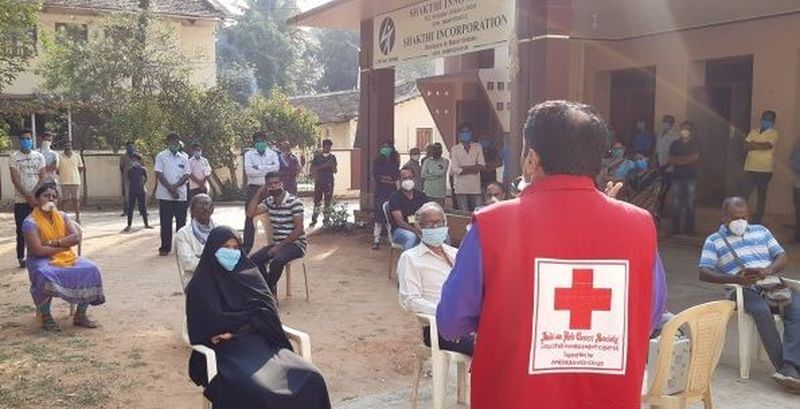
While COVID-19 continues to spread, it is important that communities take action to prevent further transmission, reduce the impacts of the outbreak and support control measures. The HELP Course training provided me with the knowledge and skills to respond to the present situation with a professional approach. This has added a lot of value to the decision-making and framing of guidelines and policies related to COVID-19 operations at our state branch as we provide a range of essential services to those affected. We have a 24×7 control room at the branch and are actively involved in surveillance and promotion of preventive measures in addition to livelihood support. The HELP course experience was particularly significant in developing the dissemination material for the communities. Quarantine is often unpleasant as the patient experiences separation from loved ones, the loss of freedom, uncertainty over disease status, and boredom. We visit the quarantine centre with the officials of the district administration to provide psychosocial care and counseling – which is something that was emphasised during the HELP course. My learnings from the HELP course have helped a lot in these challenging times and continue to motivate me.
A few other HELP course participants in action as part of the COVID-19 response:
Read more about the Red Cross response to COVID-19:
COVID-19: Red Cross Volunteers Rise to the Challenge
COVID-19: Safety Measures for Persons with Disabilities
COVID-19: Unified Response with Indian Red Cross Volunteers’ Frontline Support
Protect Yourselves and Your Loved Ones from Coronavirus


